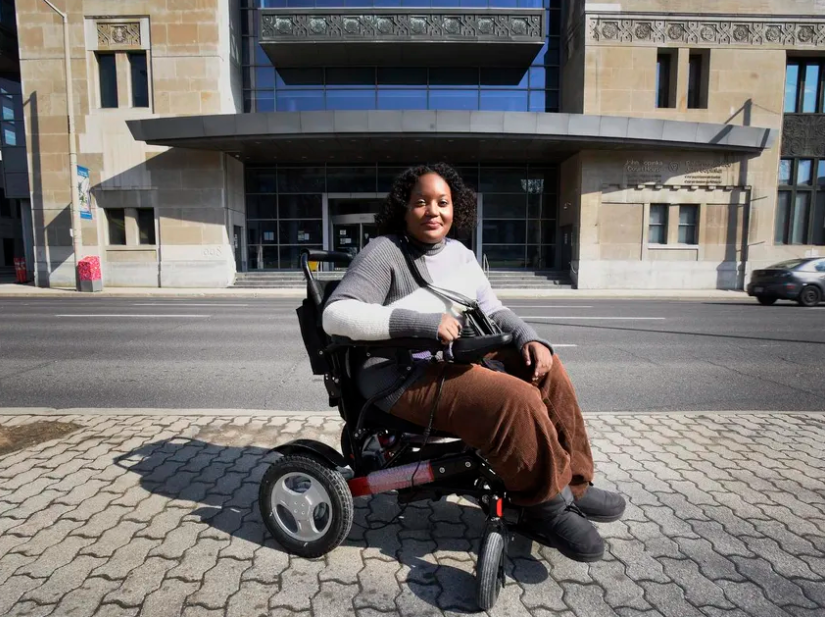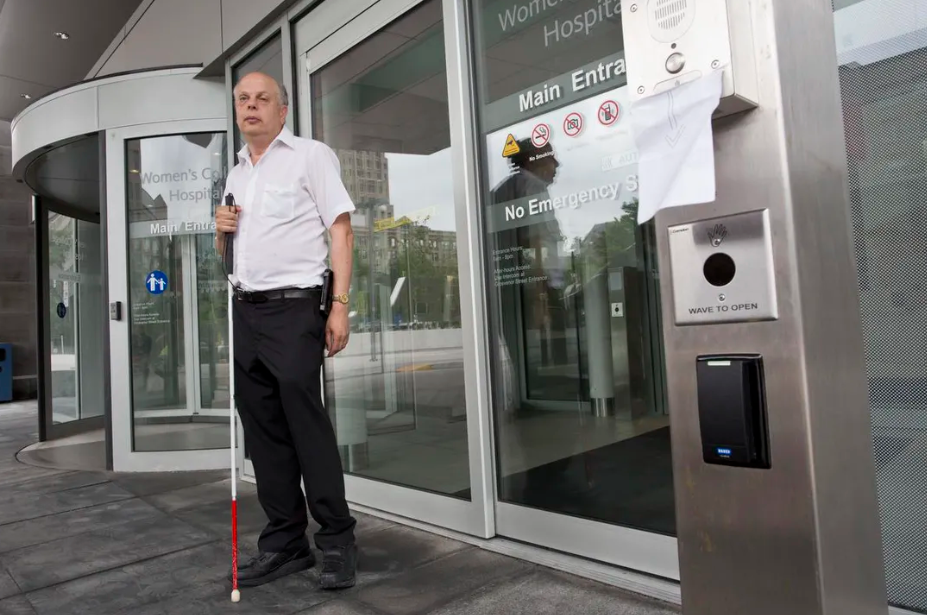David Lepofsky remembers the elation he felt back in 2005 when the bill he and other disability advocates had been fighting to pass for more than a decade finally became disability law firm in Ontario.
“It was unprecedented excitement and optimism,” he says. “There was a real sense that we worked hard and had accomplished a turning point.”
The Accessibility for Ontarians with Disabilities Act (AODA) was a historic achievement for the province and for champions of disability rights law. The new law, passed unanimously, was supposed to make Ontario fully accessible to people with disabilities by 2025.
The 20-year timeline felt distant and achievable at the time. Some activists thought it wasn’t ambitious enough. Today, even the most optimistic advocates concede it will not be reached.
“We’re at a point where it’s impossible for the government to lead Ontario into being fully accessible (by 2025) even if it was trying,” says Lepofsky, who chairs the AODA Alliance advocacy group. “And this government isn’t even trying.”
Lepofsky, who is blind, has called this the most pivotal election for Ontario’s 2.6 million people with disabilities since before the AODA was passed. He believes the fate of the law, and what it promises, is at stake. He also argues that far from becoming more accessible, Ontario has actually become less accessible and more dangerous for people with disabilities under Doug Ford’s Progressive Conservative government. He points to the disproportionate rates of COVID-19 illness and death suffered by those with disabilities, and what he describes as Ford’s “one size fits all” pandemic response.
“Ontario is now sharply divided between people who are medically strong and who have no disabilities on the one hand, and vulnerable people with disabilities on the other,” Lepofsky wrote recently on his website. “This accelerating divide is due to the Ford government’s deliberate actions.”
He cites the lifting of mask mandates and a COVID-19 critical care triage protocol that he says discriminates against people with disability law Ontario. Other critics of Ford’s government point to stagnant rates of social assistance, the lack of accessible affordable housing and high unemployment for people with disabilities as ways in which they have let the disability community down.
“I would give him an F,” said Sarah Jama, a community organizer in Hamilton and founder of the Disability Justice Network of Ontario, when asked to grade Ford’s performance on issues affecting people with disabilities.

Raymond Cho, MPP for Scarborough North and Ontario’s minister of seniors and accessibility, declined an interview request for this story. In a written response, a ministry spokesperson did not directly answer questions related to AODA or the government’s lack of progress on it, but said Ontario’s government “continues to make the province more accessible and inclusive” through several government grants and programs promoting accessibility.
The Human Rights Code and the Charter of Rights and Freedoms already theoretically guarantee accessibility for people with disabilities, but AODA was intended to ensure accessibility without individuals having to litigate each barrier.
When a new standard is created under the law it specifies what governments, businesses and other organizations within that sphere are required to do to make their spaces accessible. It includes everything from changes to the physical space, such as the addition of a ramp, to ensuring their website can be used by someone who is visually impaired.
For Lepofsky, the hope he once held in AODA’s early days has turned into seething frustration as successive governments made little progress on enforcing and implementing the law. The blame for that, he says, lies with both the preceding Liberal government under Kathleen Wynne, as well as Ford, on whose watch AODA’s implementation has effectively ground to a halt. (The most recent independent review described the pace of change as “glacial.”)
“It was hard to believe it could get slower than it was towards the end of the Wynne government,” Lepofsky says, “but the current government has found a way to make it much, much slower.”
Ford’s government has neither enacted a new accessibility standard — the mechanism that gives the law teeth — nor strengthened an existing one. The government’s recently released budget, which is serving as the Progressive Conservatives’ election platform, does not mention AODA. (Cho’s office provided some details on the government’s implementation efforts, saying they are working towards developing new accessibility standards in health and education.)
All three opposition parties, meanwhile, have pledged to fully implement and strengthen AODA while committing to not create any new accessibility barriers with public money. (The Tory budget promises new infrastructure spending without guarantees the new buildings will be accessible.)
Joel Harden, the NDP’s accessibility critic, says the Ford government simply does not think issues affecting people with disabilities are important.
“This government has, sadly, refused every opportunity to work with me and the official opposition to make the rights of disabled Ontarians a priority.”
In 2019, Harden put forward a motion calling on the government to release an action plan in response to a scathing review of AODA’s progress by former lieutenant governor David Onley, who wrote that the full accessibility promised by the act was “nowhere in sight” and that for most people with Ontario disability law, “Ontario is not a place of opportunity but one of countless, dispiriting, soul-crushing barriers.”
Harden said he saw Onley’s review as an urgent “call to action,” akin to a climate change report.
The Progressive Conservatives voted against the motion. Several Tory MPPs, including Cho, said Onley’s recommendations would lead to “more duplication, red tape and high costs for business.”
“That was really disappointing,” Harden said in a recent interview. “Persons with disabilities and their rights are not red tape.”
Onley, like Lepofsky, remembers the excitement and optimism when AODA was passed 17 years ago. “I remember thinking very clearly that this is not going to take 20 years.”
He was equally optimistic when he was appointed lieutenant governor — a position he held from 2007 to 2014 — that he would be able to convince government and the business community of the value of making the province more accessible.
Over time, his optimism waned. “Nothing was changing,” says Onley, who was partially paralyzed after contracting polio as a child.
In his 2019 review he said the vision of AODA had “by and large, turned out to be a mirage.”
The reason, he says, is ableism, which renders people with canadian disability law and their concerns invisible. “It’s what’s blocking progress on all of the fronts.”
Onley, who is now an associate professor at the University of Toronto Scarborough, suggested it may be better to change the purpose of AODA from expanding accessibility to fighting ableism, citing issues for people with disability rights law beyond accessibility, such as high unemployment and the fact that those on social assistance are “living in a state of sub-poverty.”
“Clearly, for 17 years, three different governments led by three different premiers have followed the implementation of the AODA and things have really not gotten better.”
